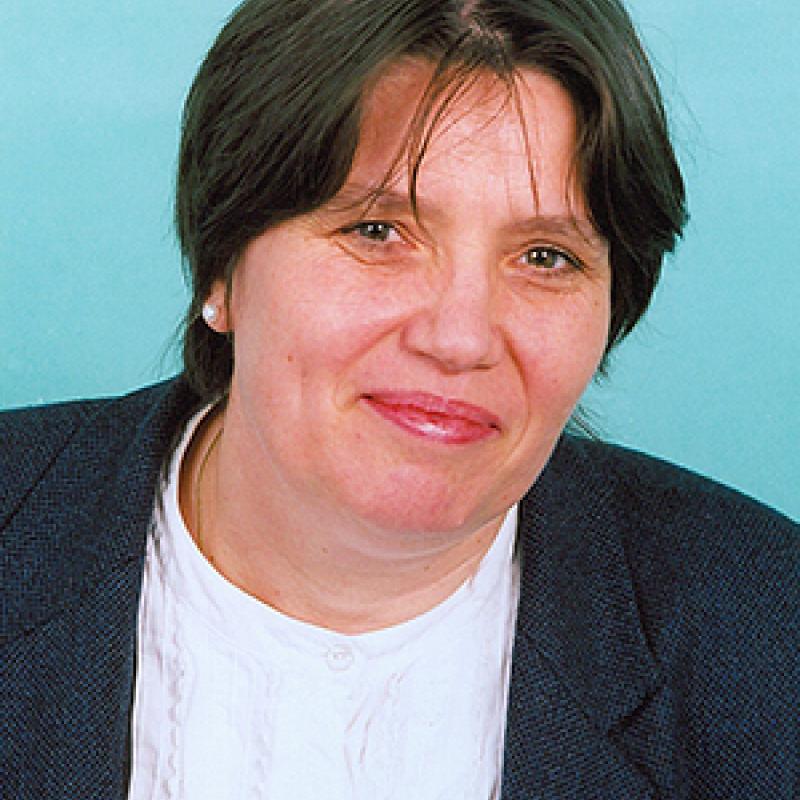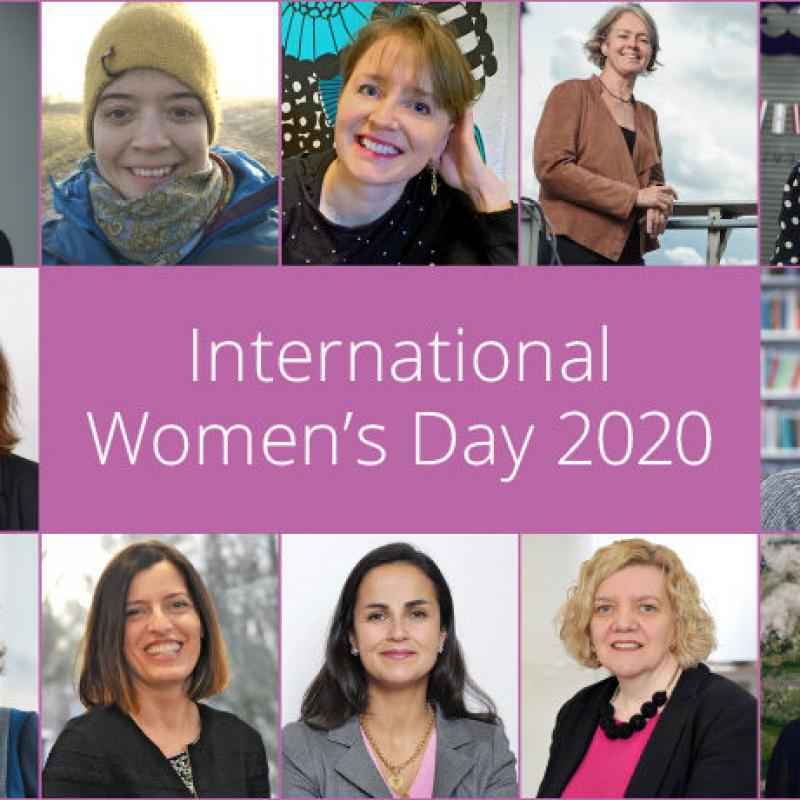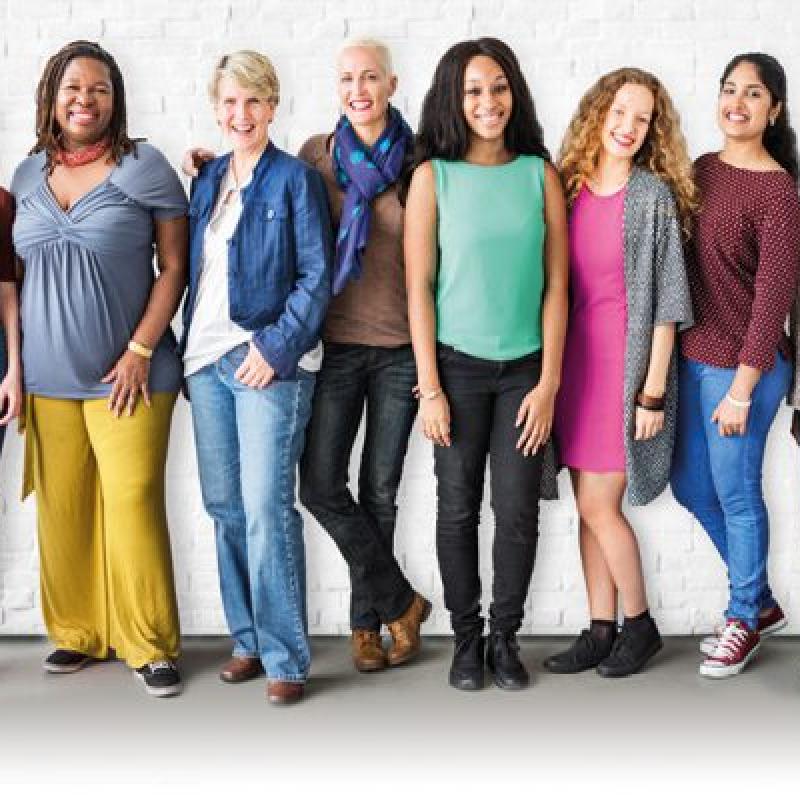The ESCAPE-2 project incorporates aspects of subject areas such as computer science, numerical technologies in science and engineering, and geophysical sciences related to weather and climate. As discussed, for example, in reference [1] and literature therein these subjects belong to disciplines in which women are significantly under-represented. Indeed, the low percentage of female participants in the project illustrates a typical gender imbalance in many skilled workforces active in these subject areas. However, the long term and multi-national application of ESCAPE-2’s outcomes, related training, and wide-ranging dissemination to young scientists and the general public makes ESCAPE-2 a valuable vehicle for promoting gender equality and raising awareness of career opportunities in these disciplines.
The potential contribution to the European economy and society that the currently unexploited female talent could make in science and engineering has been recognised by the European Parliament. Its 9 September 2015 resolution on `Women’s careers in science and universities, and glass ceilings encountered’ (2014/2251(INI)) [2]; and `Rome Declaration on Non Discrimination, Diversity and Equality’ 2014 [3] emphasise the need to address gender balance issues. It is also reflected in the Horizon 2020 strategy for `Promoting Gender Equality in Research and Innovation’ [4].
Among the ESCAPE-2 partners, Loughborough University’s commitment to advancing women’s careers in Science, Technology, Engineering, Maths, and Medicine (STEMM) has been recognised by the Athena SWAN awards scheme (double bronze medals) [5]. This commitment continues through the research of Loughborough University staff into Gender Equality, such as the participation in the European Commission funded project Gendertime [6]. Their experience will be utilised to support the implementation of the ESCAPE-2’s Gender Balance Plan.
In the ESCAPE-2 Gender Balance Plan, the following issues relating to the under-representation of women in science and engineering are specifically addressed:
- Ensure women’s participation in IT developments and applications as active members of research/engineering teams (WP1-WP4), and work package co-lead and task leaders (WP1);
- Promote gender equality and diversity in activities conducted in training facilities built in the project (WP5): by fostering equal gender participation in training videos and webinars, and by promoting women’s success stories through the project website;
- Encouraging activities that implement equal opportunity policies in ESCAPE-2 partner’s businesses.
The ESCAPE-2 project incorporates aspects of subject areas such as computer science, numerical technologies in science and engineering, and geophysical sciences related to weather and climate. As discussed, for example, in reference [1] and literature therein these subjects belong to disciplines in which women are significantly under-represented. Indeed, the low percentage of female participants in the project illustrates a typical gender imbalance in many skilled workforces active in these subject areas. However, the long term and multi-national application of ESCAPE-2’s outcomes, related training, and wide-ranging dissemination to young scientists and the general public makes ESCAPE-2 a valuable vehicle for promoting gender equality and raising awareness of career opportunities in these disciplines.
The potential contribution to the European economy and society that the currently unexploited female talent could make in science and engineering has been recognised by the European Parliament. Its 9 September 2015 resolution on `Women’s careers in science and universities, and glass ceilings encountered’ (2014/2251(INI)) [2]; and `Rome Declaration on Non Discrimination, Diversity and Equality’ 2014 [3] emphasise the need to address gender balance issues. It is also reflected in the Horizon 2020 strategy for `Promoting Gender Equality in Research and Innovation’ [4].
Among the ESCAPE-2 partners, Loughborough University’s commitment to advancing women’s careers in Science, Technology, Engineering, Maths, and Medicine (STEMM) has been recognised by the Athena SWAN awards scheme (double bronze medals) [5]. This commitment continues through the research of Loughborough University staff into Gender Equality, such as the participation in the European Commission funded project Gendertime [6]. Their experience will be utilised to support the implementation of the ESCAPE-2’s Gender Balance Plan.
In the ESCAPE-2 Gender Balance Plan, the following issues relating to the under-representation of women in science and engineering are specifically addressed:
- Ensure women’s participation in IT developments and applications as active members of research/engineering teams (WP1-WP4), and work package co-lead and task leaders (WP1);
- Promote gender equality and diversity in activities conducted in training facilities built in the project (WP5): by fostering equal gender participation in training videos and webinars, and by promoting women’s success stories through the project website;
- Encouraging activities that implement equal opportunity policies in ESCAPE-2 partner’s businesses.
- [1] S. Barnard, A. Powell, B. Bagilhole and A. Dainty, Researching UK Women Professionals in SET: A Critical Review of Current Approaches, International Journal of Gender, Science and Technology, Vol. 2, No.3, 2011. http://genderandset.open.ac.uk/index.php/genderandset/article/view/65/175.
- [2] “European Parliament resolution of 9 September 2015 on women’s careers in science and universities, and glass ceilings encountered” (2014/2251(INI)), http://www.europarl.europa.eu/sides/getDoc.do?pubRef=-//EP//NONSGML+TA+P8-TA-2015-0311+0+DOC+PDF+V0//EN
- [3] “Rome Declaration on Non Discrimination, Diversity and Equality" 2014, http://ec.europa.eu/justice/events/hle-2014/files/hle2014_romedeclaration_en.pdf
- [4] “Promoting Gender Equality in Research and Innovation”, https://ec.europa.eu/programmes/horizon2020/en/h2020-section/promoting-gender-equality-research-and-innovation
- [5] Athena SWAN http://www.lboro.ac.uk/news-events/news/2014/october/172athenaswan.html and http://www.lboro.ac.uk/news-events/news/2014/october/172athenaswan.html
- [6] European Commission funded project, Gendertime http://www.gendertime.org/.



